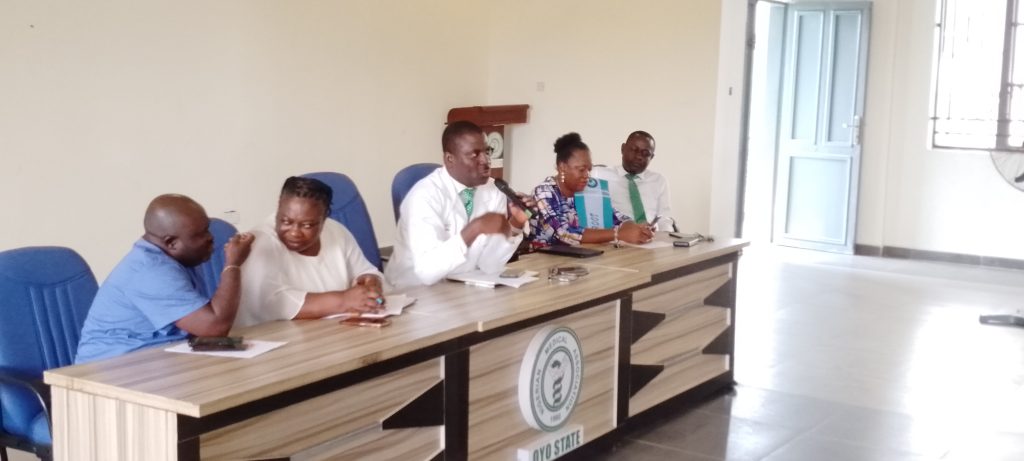


The President of the Nigerian Medical Association (NMA), Professor Bala Audu, has called on all levels of government in Nigeria to ensure the uniform implementation of the Consolidated Medical Salary Structure (CONMESS) across states and healthcare levels.
In his speech marking the 2024 National Physician Week, Professor Audu emphasized the importance of prompt payment of all outstanding arrears related to salary upgrades.
According to him, the government must invest in the nation’s healthcare infrastructure, improve working conditions for healthcare workers, and prioritize healthcare on the national agenda.
He noted that Nigeria’s healthcare professionals possess the talent, knowledge, and passion needed to drive the sector forward.
Speaking on behalf of the NMA President at the NMA House in Agodi, Ibadan, the state chairman of the association, Dr. Happy Adedapo, stated that fair remuneration is more than just a salary figure, adding that, “It’s a recognition of our value, a motivator for excellence, and a safeguard against burnout.”
Dr. Adedapo further explained, “In any industry, but especially in healthcare, adequate compensation reflects the time, emotional energy, and personal commitment healthcare professionals invest.
“When healthcare workers are compensated fairly and equitably, they feel valued and respected. This respect, in turn, fuels their dedication, strengthens their commitment to patient care, and fortifies the broader health ecosystem.”
Professor Audu noted that globally, countries recognize the importance of fair remuneration and invest in competitive salaries and attractive benefits to retain healthcare talent.
“We cannot expect to compete for talent unless we make remuneration fair, transparent, and universally applicable,” he added. “Failing to do so will lead to the loss of our best and brightest minds to countries willing to invest in their healthcare workforce.”
Addressing this year’s theme, “Ensuring Universal Applicability in Remuneration: A Panacea to Talent Retention in the Healthcare System,” and the sub-theme, “Mitigating the Impacts of Infectious Diseases: Addressing the Monkeypox Outbreak and Beyond,” he emphasized that Nigeria’s healthcare professionals are as mobile as any global workforce.
He explained, “Despite the strides we have made, healthcare workers in Nigeria face significant financial disparities, saying, pay structures vary widely depending on location, institution, and professional level, creating a fragmented remuneration system that is neither sustainable nor competitive on a global scale.”
Professor Audu highlighted that many experienced healthcare professionals are leaving Nigeria for opportunities abroad. This “brain drain” is not merely a result of individual decisions but a consequence of a system that fails to provide adequate compensation and career fulfillment.
“Many doctors and health workers find themselves overworked and underpaid,” he said. “The inconsistency in salaries is evident not only across the country but even within similar healthcare institutions. These disparities discourage young and talented healthcare professionals from entering or remaining in the workforce, ultimately increasing the burden on those who stay.”
In response to questions, Dr. Adedapo warned that unless positive changes occur in the health sector, the mass exodus of healthcare workers will continue, posing a serious threat to the sector.
He concluded that universal applicability in remuneration would be beneficial, as it recognizes the value of healthcare workers regardless of where they serve.








